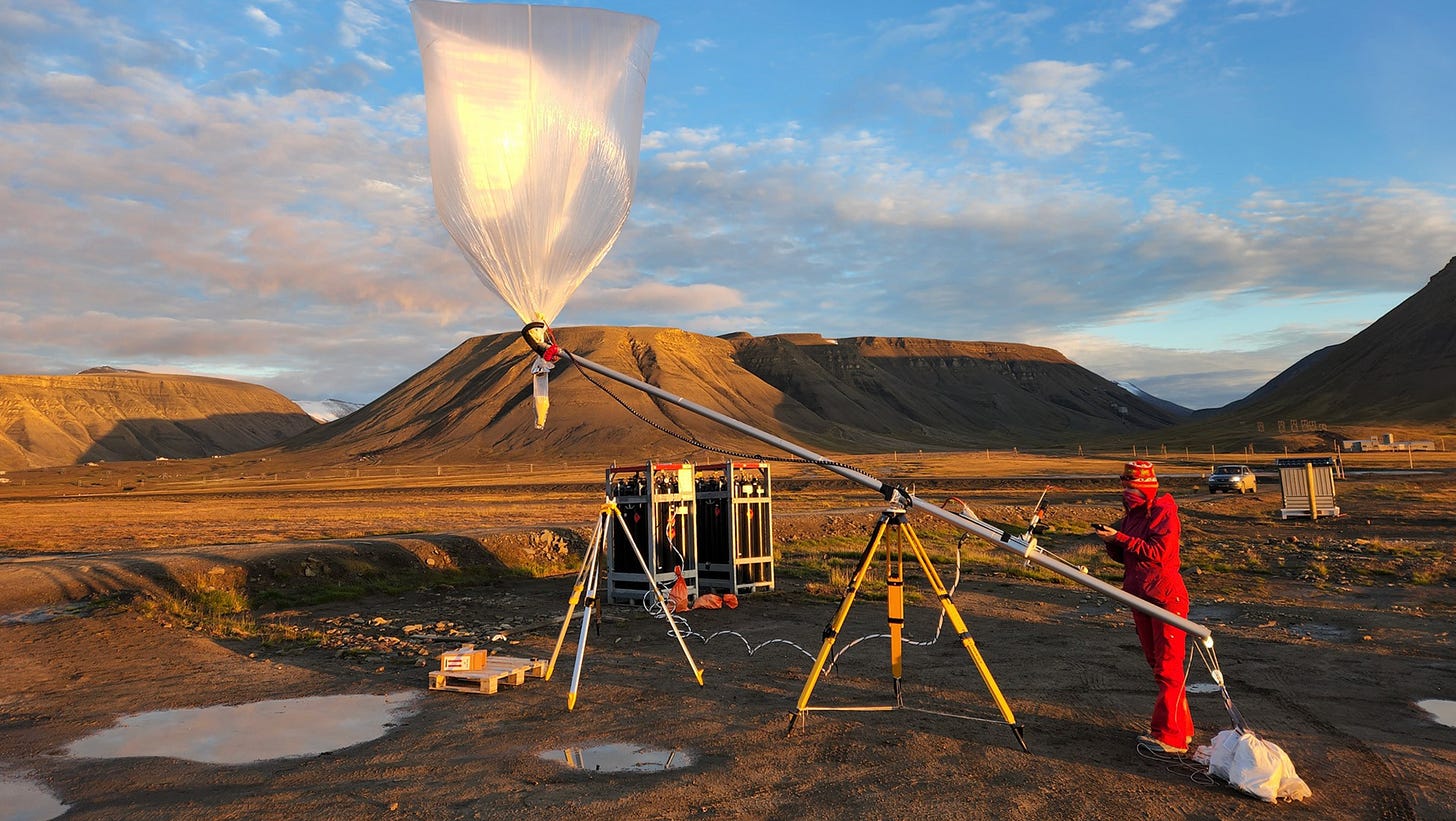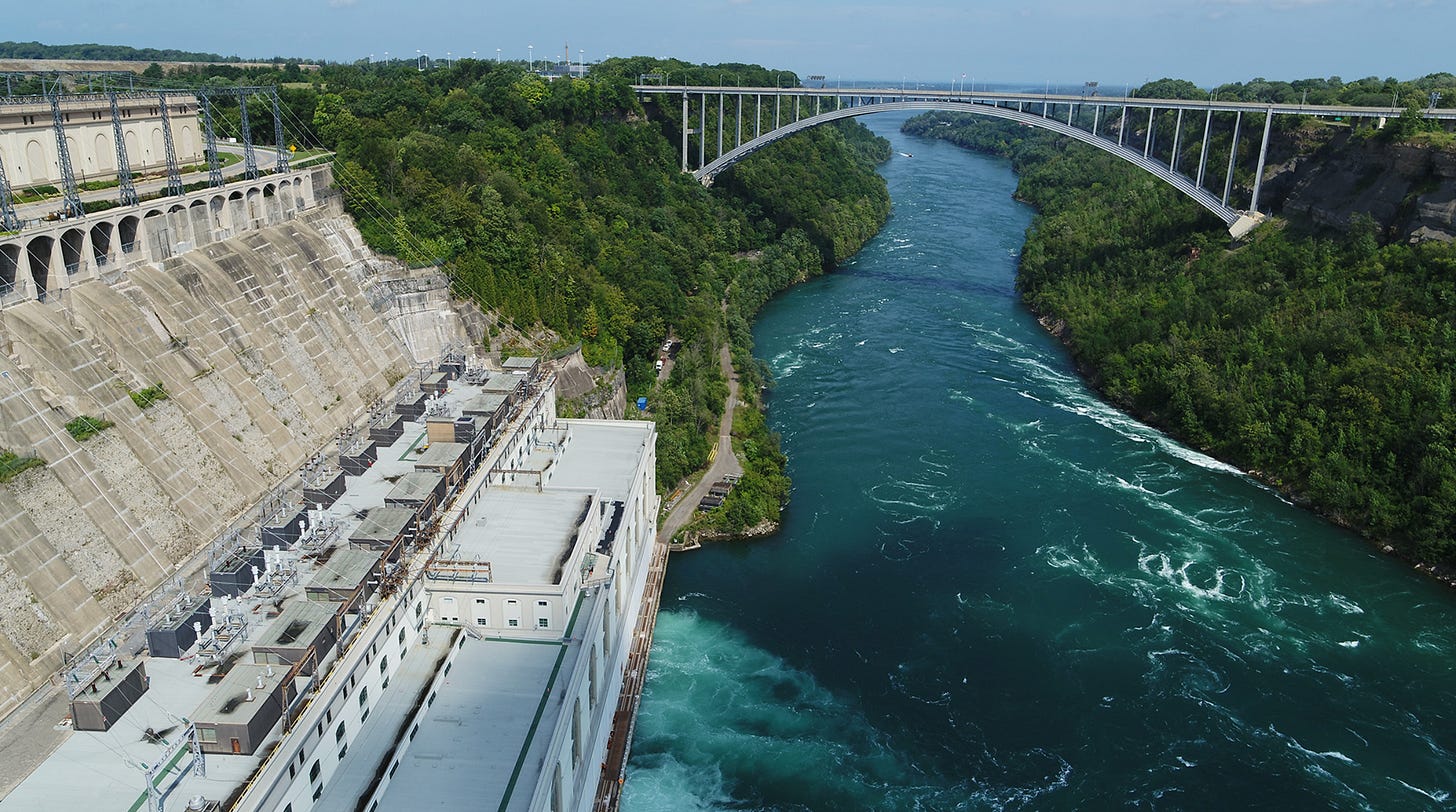Weather startup helps NWS after DOGE layoffs shut operations
Plus, Trump's tariff wars threaten to spill into cross-border energy deals
In today’s edition:
— Palo Alto weather startup steps in to help NWS in Alaska after DOGE layoffs
— Canadian province threatens to shut off power exports to U.S. after Trump tariffs
— London’s Kew Gardens to open carbon garden this summer to teach climate crisis
— Easing U.S. logging regulations would increase - not decrease - wildfire risk
— Researcher says world has already dumped 363 million tons of garbage this year

A Palo Alto, Calif.-based weather startup stepped in late last week to help the National Weather Service after hundreds of DOGE layoffs caused it to suspend weather balloon launches in a remote site in Alaska.
WindBorne Systems, which calls itself a planetary intelligence company, said it will offer atmospheric data from its own Alaska-based weather balloons to NWS for free for six months after a sudden loss of staff caused it to suspend operations at its station in Kotzebue in northwest Alaska.
“We’ll have balloons flying over Kotzebue from Fairbanks,” said WindBorne CEO John Dean, who we caught up with this week as he landed in Washington, D.C. for meetings with the government. “For six months, it makes sense for us to do this now.”
Callaway Climate Insights wrote about WindBorne last year (Read Zeus: A sneak peek at this year's climate startup universe) after meeting one of its co-founders, Kai Marshland at a startup conference in San Francisco. Dean is another of a group of co-founders of WindBorne, which was started out of Stanford University and is backed by local venture capital firm Khosla Ventures.
It was started in 2019 and to date has launched about 2,200 weather balloons, which carry its proprietary weather software and are designed to fly for up to 40 days, compared to just a few hours for traditional weather balloons. The products are designed to help cover 85% of the atmosphere that is still not regularly monitored.
Dean said he will meet this week with officials at the Dept. of Energy, various lobbyists, and the White House’s Office of Science and Technology, in part to determine if there are other operations at risk that WindBorne might help with. The NWS’s Alaskan operations are crucial for monitoring weather conditions that often spread to the rest of the country and Canada.
Dean said the confusion around DOGE cuts could certainly lead to issues with some of WindBorne’s contracts but also lead to opportunities. “Regardless of your stance on climate change, weather forecasting is really important,” he said.
Don’t forget to contact me directly if you have suggestions or ideas dcallaway@callawayclimateinsights.com.
Follow us . . . .
Twitter | LinkedIn | Facebook | Instagram
Tuesday’s subscriber insights
Ontario threatens to drag power sharing deals into U.S. tariff spat
Keep reading with a 7-day free trial
Subscribe to Callaway Climate Insights to keep reading this post and get 7 days of free access to the full post archives.


